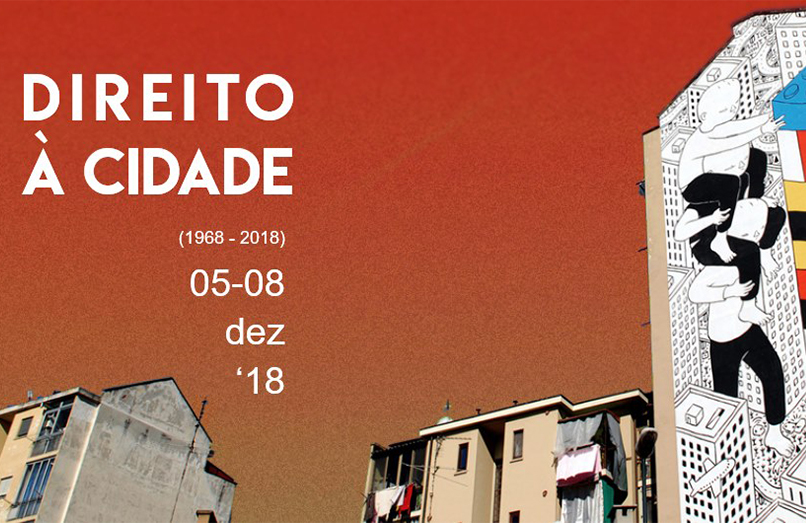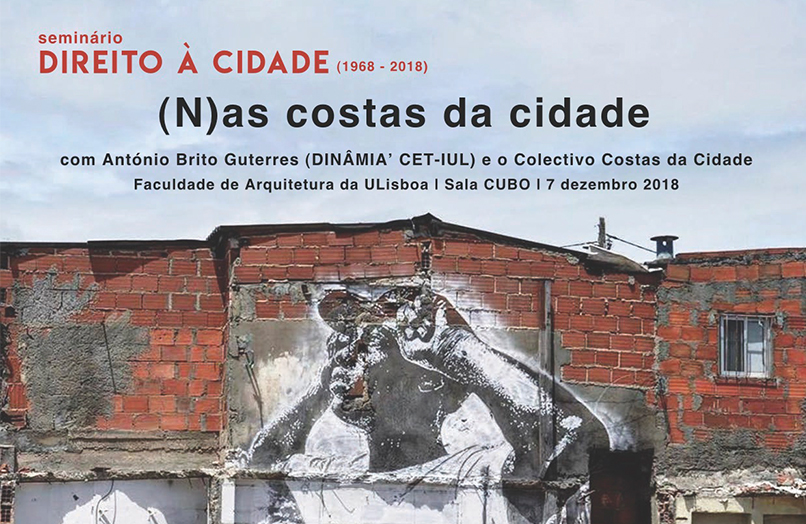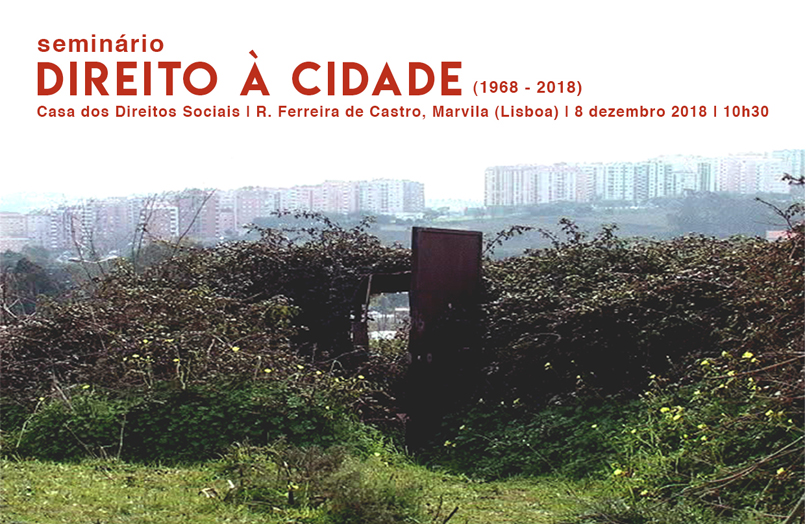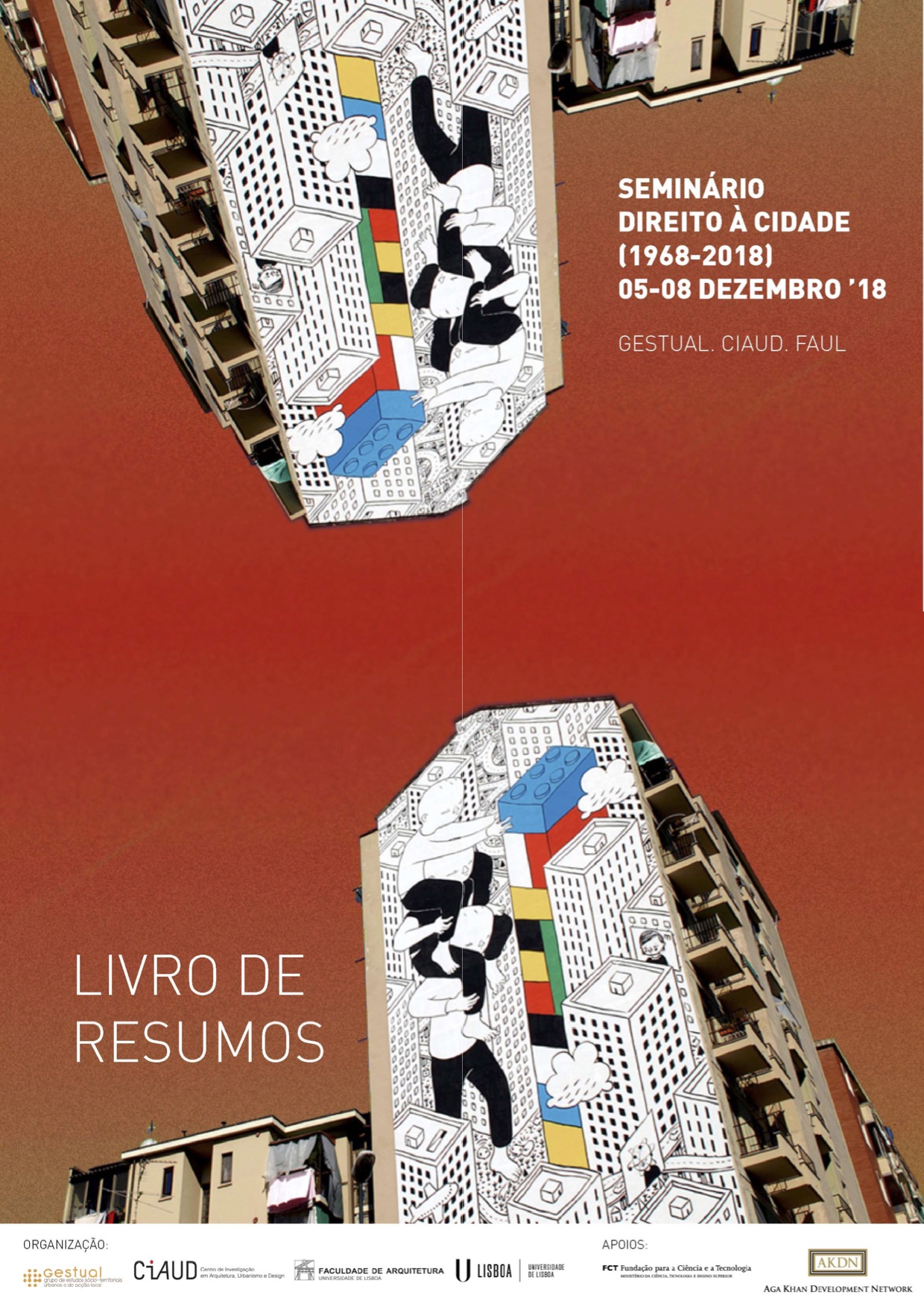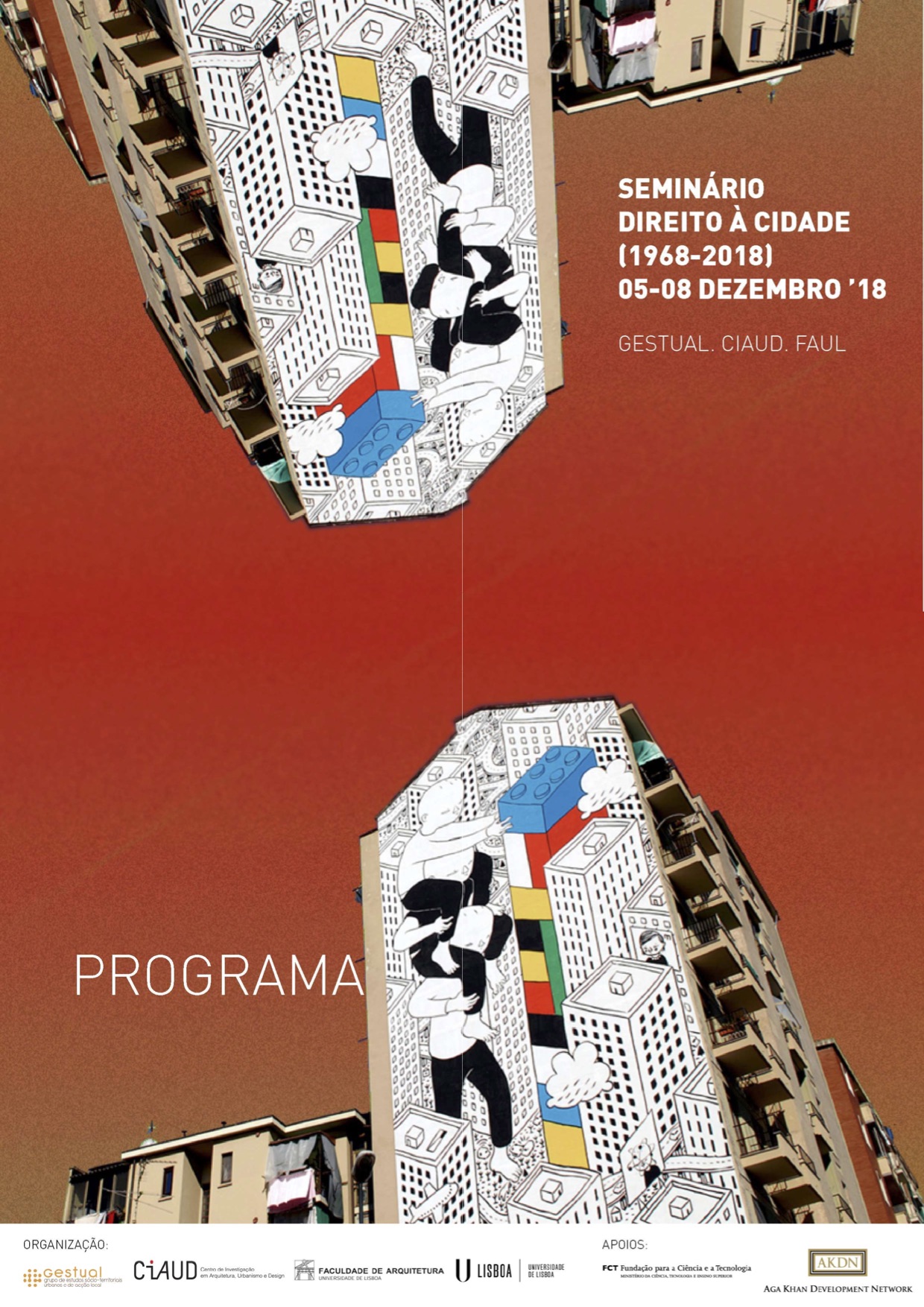Apresentação
Com a crescente mercantilização da cidade no quadro da lógica de acumulação capitalista, agravada em situação de financeirização da economia, que se estende ao espaço urbano e à habitação, assiste-se ao agravamento da segregação e fragmentação socioespacial e à explosão das periferias, em grande parte desqualificadas. Ao mesmo tempo, afirma-se uma consciência crescente dos direitos dos cidadãos e o espaço urbano torna-se palco de múltiplas insurgências em vários lugares do mundo. Reclama-se contra a falta ou a perda de direitos no quadro de uma urbanização neoliberal, marcada pela violência crescente do mercado e, tantas vezes, por uma gestão pública reprodutora da lógica capitalista.
Neste ano de 2018, cinquentenário da primeira edição do manifesto de Henri Lefebvre – Le droit à la ville (1968) –, a noção de Direito à cidade tem sido crescentemente apropriada pelos movimentos sociais urbanos, mas também por diversos discursos sobre a transformação da realidade urbana, com diferentes significados, mais ou menos emancipatórios, vindos da academia, do poder político local e nacional ou das organizações internacionais. Nas múltiplas e diversificadas ações e reações e nos múltiplos discursos diferentes ou contraditórios, configuram-se distintos futuros. Neste seminário pretende-se contribuir para a reflexão teórica sobre a noção do direito à cidade e sobre a sua pertinência hoje para aprofundar a análise crítica do urbano neoliberal, superar a lógica dominante do mercado e do valor de troca e ampliar o campo do possível, reinventando a cidade como obra coletiva e imaginando uma outra sociedade urbana, governada pelo valor de uso, mais justa e inclusiva.
O seminário inclui palestras, mesas redondas com teóricos, especialistas e ativistas, em torno de cinco grandes temas, tendo o espaço da lusotopia como território de estudo: a noção de Direito à cidade; a Nova Geração de Políticas de Habitação em Portugal e o direito à habitação e à cidade; as práticas contra-hegemónicas emergentes de produção coletiva de outro espaço, através de contra-planos e contra-projetos; as intervenções inclusivas e/ou subversivas no espaço público; o papel do ensino e da extensão universitária na ótica da produção coletiva de outra cidade e outra arquitetura. Será ainda lançado um apelo a comunicações científicas e à discussão em painéis temáticos em torno destes grandes temas. O debate alargado permeará todo o seminário, que incluirá visitas de estudo e manifestações culturais e culminará na construção de um manifesto coletivo.
O evento é organizado pelo GESTUAL-CIAUD-FAUL e realizar-se-á em Lisboa entre os dias 05 e 08 de Dezembro de 2018, no quadro de dois projetos de investigação conduzidos pelo GESTUAL, sob a coordenação de Isabel Raposo: um em conclusão, “Subúrbios Habitacionais no espaço da lusotopia”; e outro, em abertura, financiado pela Fundação para a Ciência e Tecnologia e pela Fundação Aga Khan, “África Habitat: da sustentabilidade do habitat à qualidade do habitar nas margens urbanas de Luanda e Maputo”.
Painéis do Seminário:Presentation
With the growing commodification of the city in the context of the capitalist accumulation logic, aggravated by the financialization of the economy, which extends to urban space and housing, is observable the worsening of sociospatial segregation and fragmentation and the explosion of peripheries, largely without proper quality of habitat. At the same time, a growing awareness of citizens’ rights consolidates and urban space becomes the stage of multiple insurgencies in various places of the world. People complain against lack or loss of rights in the context of a neoliberal urbanisation, marked by the growing violence of the market and, often, by a public management which reproduced the capitalist logic.
During this year of 2018, the fiftieth anniversary of the first edition of Henri Lefebvre’s manifesto – Le droit à la ville (1968) –, the notion of the Right to the city has been increasingly appropriated by urban social movements, but also by different discourses about the transformation of urban reality, with different meanings, more or less emancipatory, from the academy, the local and national political power or international agencies. In the multiple and diversified actions and reactions and in the multiple different or contradictory discourses, distinct futures are configured. This seminar intends to contribute to the theoretical reflection about the notion of the right to the city and about its pertinence today to deepen a critical analysis of the neoliberal urban, to overcome the dominant market logic and exchange value, and to broaden the field of possibilities, reinventing the city as a collective work and imagining another urban society, governed by use value, more just and equal.
The seminar includes keynote speeches, round tables with theorists, specialists and activists, around five main themes, having the space of lusotopia as a space of study: the notion of the right to the city; the New Generation of Housing Policies in Portugal and the Right to housing and to the city; the emergent counter-hegemonic practices of collective production of another space, through counter-plans and counter-projects; the inclusive and/or subversive interventions in the public space; the role of education and of university extension in the collective production of another city and architecture. There will also be a call for scientific presentations and for discussion of thematic panels concerning these main themes. Broad debate will be present throughout the seminar, which will include field trips and cultural manifestations, and which will culminate with the construction of a collective manifesto.
The event is organised by GESTUAL-CIAUD-FAUL and will take place in Lisbon between 5th and 8th December 2018, within two research projects conducted by GESTUAL, under the coordination of Isabel Raposo: one in conclusion, “Housing Suburbs in the space of lusotopia”; and another, which is now beginning, funded by the Foundation for Science and Technology and by the Aga Khan Foundation, “Africa Habitat: from sustainability of habitat to the quality of inhabit in the urban margins of Luanda and Maputo”.
Seminar panels:Livro de Resumos: Book of Abstracts:


